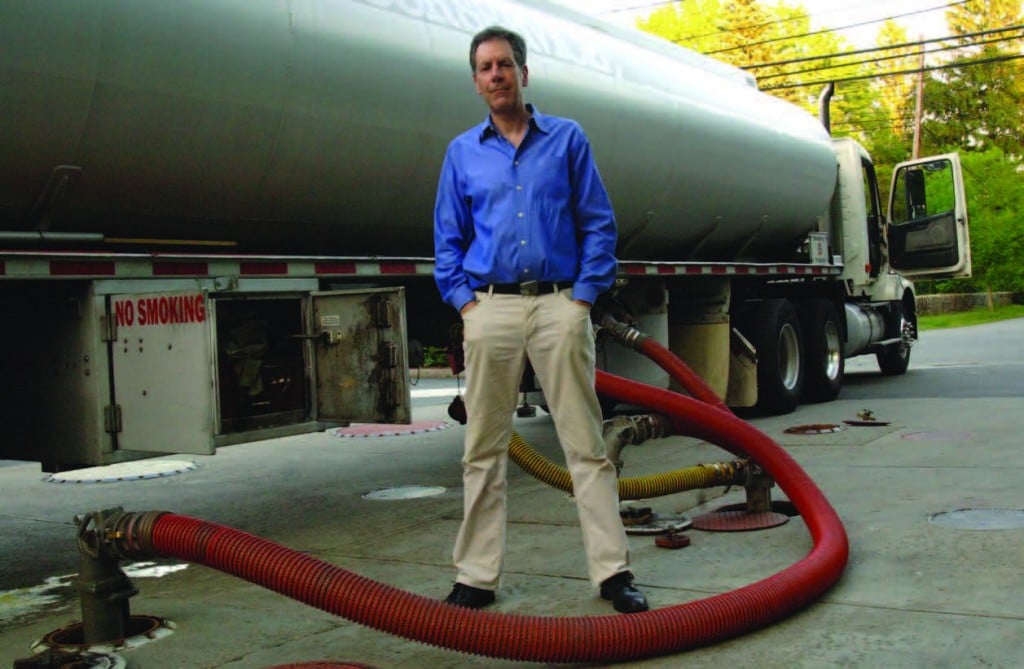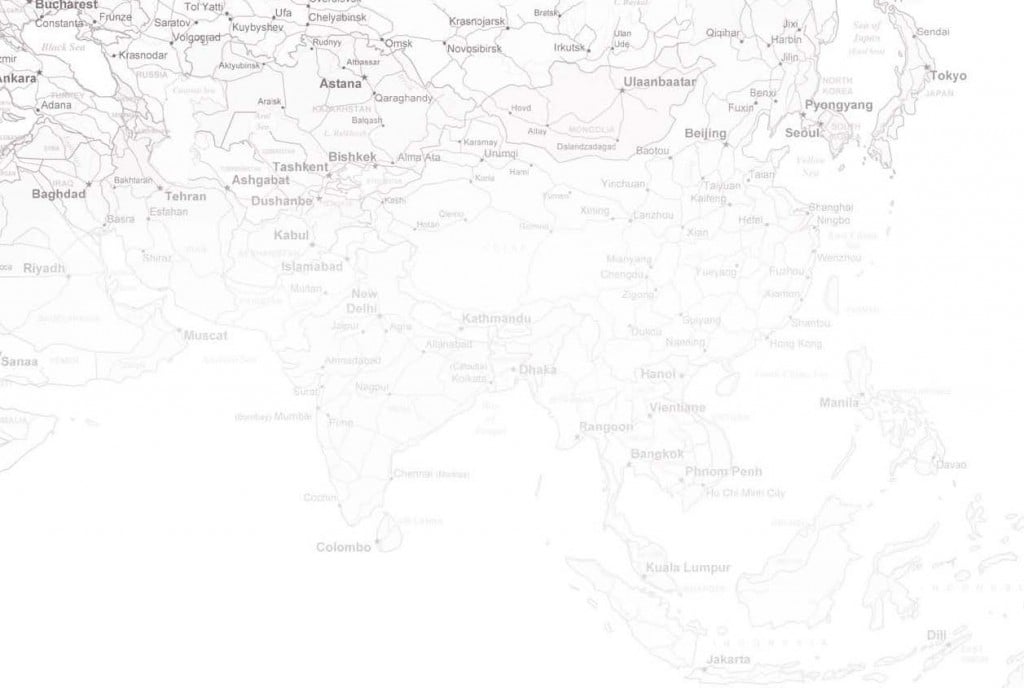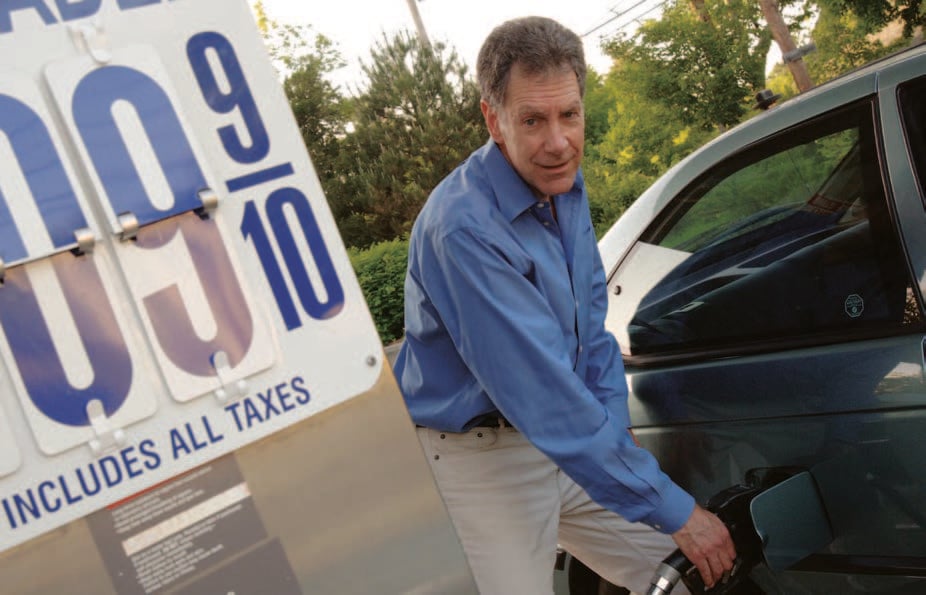
Geographer and alumnus Roger Stern had no idea the media frenzy his conclusions would ignite when he published his latest findings about Iran and its oil supply.
When Roger Stern, PhD ’07 was accepted into the graduate program of the Whiting School’s Department of Geography and Environmental Engineering (DoGEE), he felt lucky. A botanist with what he says were only average math skills, he was interested in studying the intricacies of water pollution regulation.
Five years later, his work was literally making headlines. Only it wasn’t about pollution. It was about the world oil situation, nuclear proliferation, and the U.S. standoff with Iran.

According to Stern’s numbers, by 2014 Iran could actually be facing an oil shortage, even though there’s plenty of oil left in the ground.
The attention started last December when Stern published a paper in Proceedings of the National Academy of Sciences (PNAS) saying that the Iranians might be telling the truth when they say they need nuclear power to meet domestic demand for electricity. That paper spawned reports in The New Yorker and The Washington Post, on National Public Radio, and hundreds of other news outlets, and kept his phone ringing for days with reporters looking for interviews.
“It was wild,” says the 56-year-old. And a long way from sea grasses and marine pollution.
Stern majored in biology at Antioch College in Ohio and received a master’s in botany from the University of Vermont in 1983. He quickly moved into the policy side of the environmental movement, working for four years for the Nature Conservancy in West Virginia, and then starting in 1991 as the executive director of the Marine Studies Consortium in Wellesley, Massachusetts.
As part of an effort to restore the state’s coastal areas, he tried to get government funding to mitigate non-point-source pollution— the runoff from lawns, streets, and farms that causes most water pollution.
But Stern soon butted heads with an alliance of bureaucrats and utility subcontractors who were interested only in expensive, largescale mitigation efforts. He fought to free up money for small-scale remediation. Just as important, he found that his intellectual interest was piqued.
“All of these interests in anomalies between policies and actuality transferred perfectly to the world of energy policy,” he recalls. “There was a set of ideas, some of which may have once had a vague connection to reality, but which no longer did, but still ruled the way the problem was imagined by those with the power to do something with them.”
At a conference Stern organized, he met John Boland, professor emeritus in the Whiting School’s Department of Geography and Environmental Engineering. That meeting led to Stern’s eventually applying to Hopkins.
Stern says he was eager to work with Boland, an engineer and economist who is an internationally recognized expert in water policy. He was also attracted to DoGEE— which offers programs ranging from environmental chemistry to wastewater treatment to economic analysis—because the department encourages a multidisciplinary approach to solving environmental problems.
“We’re a good environment for students who want to bring different things together,” says Boland, who was Stern’s thesis adviser. “[Roger] was probably an extreme example of that. He was already trained in biology and ecology and other skills. That was one reason I thought he would work out well in our department.”
Stern couldn’t afford to give up his job or move to Baltimore, so he continued to work part time, flying in two days a week from his home in Massachusetts.
But during his second week of classes the 9/11 attacks occurred, and Stern became much more interested in the Middle East and terrorism. The following spring he heard David Green of the Oak Ridge National Laboratory speak about the immense oil profits being funneled to Middle Eastern countries. Stern had a new academic subject to explore.
He published his first paper in January 2006 in PNAS. It was titled “Oil Market Power and the United States National Security.”
“I considered it to be a very severe critique of past policy, and of the Bush administration. It’s much more incendiary [than the Iran paper], and of much higher public interest,” he says.
At the heart of that first paper is the idea that there is no real shortage of oil, an idea that has been advanced by Morris Adelman of MIT and other economists. Their work directly contradicts “Peak Oil” theorists, who contend that global oil production will soon begin to decline.
Adelman and others say that economic indicators suggest there is still plenty of oil in the ground. Stern advanced the argument by collecting historical information on the investment needed to get oil out of the ground in a number of Middle Eastern oil fields. He showed that this “recovery cost” has actually declined over time, which you would not expect if oil were truly becoming more scarce.
Instead, Stern says that the evidence suggests that OPEC countries intentionally keep supplies low and prices high by not developing oilfields as fast as they could. Using the data he collected on recovery costs, he estimates that in a truly competitive market, oil would likely be selling for between $4 and $10 a barrel, not the $60 a barrel and up it demands now.

On the other hand, he notes, OPEC doesn’t really have the power to use oil as a political weapon. If OPEC refuses to sell to the United States, the third parties it does sell to will eventually resell the oil to the U.S. anyway. And if OPEC tries to limit oil production further, as it did in the 1970s, prices will skyrocket, demand will fall, and then prices will collapse.
The real security threat, Stern argues, comes from the huge wealth the OPEC countries have amassed, which he calculates to be $100 billion dollars a year or more over a fair return in a competitive market. Some of that money, he pointed out, goes to fund extremist religious movements and terrorist organizations.
It also makes every OPEC country a ripe target for a military takeover by other countries hoping to corner more oil wealth, just as Iraq attempted to annex Kuwait in 1990. Fearing the rise of a single oil superpower, the U.S. devotes additional billions in military spending as a preventive measure.
Stern’s recommendation is a simple one: The U.S. and other countries should lower oil demand through conservation and energy taxes. Prices would fall and OPEC profits would decline to more reasonable rates, leaving less money for terrorism, and less incentive for one country to invade another, he argues.
So, in a single paper Stern repudiated Peak Oil theorists who say oil supplies will soon begin to decline; accused OPEC countries of wringing billions in extra profits out of the rest of the world and using the proceeds to fund terrorism; and called a half century of U.S. fears for its oil supplies groundless.
That paper inspired no interest from the media.
“The first paper was completely ignored. It was like nothing ever happened. I had thought I was going to get death threats,” Stern says. And, despite being published in the highly respected PNAS, it also didn’t seem to be leading to any job offers.
So, it was a pleasant surprise when, almost a year later, the paper on Iran created such a media stir. In that paper, Stern suggests that Iran might have a legitimate need to build nuclear power plants to meet domestic energy demand—something the Bush administration has argued strongly against, saying that with so much oil, Iran can’t possibly need the plants for energy production.
But Stern dug up the numbers on the amount of oil Iran was producing, how much it uses domestically, and how much it would need to invest to continue to meet domestic demand and make up for the wells that were being depleted. According to Stern’s numbers, by 2014 Iran could actually be facing an oil shortage, even though there’s plenty of oil left in the ground.
(Stern also concluded that the looming Iranian oil shortage is largely a result of political decisions. Iran subsidizes domestic consumption, which keeps demand high; and the nation is hostile to foreign investment, which means it has a hard time increasing production.)
Stern thinks that the barrage of news coverage this second paper received was due, ironically, to his suggestion that an oil-rich country might be running out of oil.
“I was inadvertently tapping into Peak Oil mania,” he says.
Adelman, the MIT economist, praised Stern for taking a realistic look at the global oil situation, one that goes against the tide of most media reports.
“Good luck to him in trying to bring a little reason into the dialogue,” Adelman says.
Not everyone agrees with Stern’s conclusions, of course. Many remain skeptical of the idea that economic indicators are capable of signaling how much oil is left in the ground. Cleveland Cutler, a professor in the Department of Geography and Environment at Boston University, thinks that economic indicators like cost of recovery don’t do a good job of predicting when oil production will begin to fall.
“The notion that we can use the market to signal peak oil is pretty much false. There’s no evidence to suggest that reality matches the theory,” Cutler contends.
Although Stern might not have convinced everyone, the attention from the Iran paper has gotten him noticed. He has given talks all over the country, and in May accepted a fellowship at the Princeton Transregional Institute.
“It’s been very heavy going,” Stern says. “I’m a geographer. I’m not an economist, I’m not a political scientist. The academic world doesn’t look kindly on interdisciplinary work by those who haven’t established themselves as experts.
“But I’m not going to quit what I’m doing. The story’s too big. It’s endlessly fascinating.”




